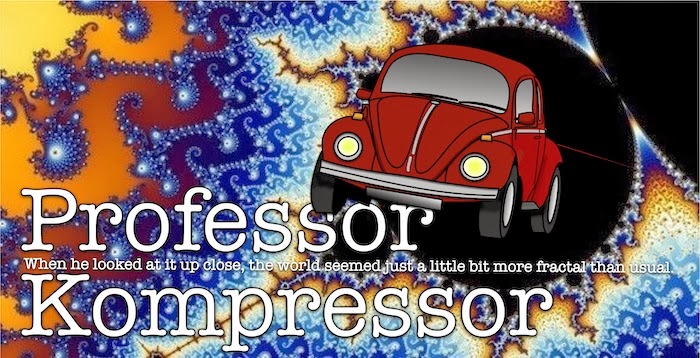"By denying scientific principles, one may maintain any
paradox."
Galileo Galilei, born 15
February 1564
Last week saw the passing of
two important dates. If you happened to forget the first of them, you may have
ended up in domestic trouble. The second you may not have been aware of. The
first date, the obvious one, was Valentine’s Day. Dating back to the days of
the Roman Empire this celebration has been completely taken over by commercial
interests. These days Valentine’s Day seems more about the purchase of roses
and boxes of chocolate that any true sentiment. The other date, actually the
day after, is more obscure. The 15th of February was the birthday of Galileo
Galilei, often considered the father of modern science. This year he would have
been 449 years old, so you might think it would have been wise to wait until
next year to celebrate. I disagree. Since 449 is a prime, I think dear old
Galileo would have been more keen on this celebration than the boring 450.
I wasn’t really planning on turning this into an
admiration session for a long dead Italian chap that may, or may not as the
case may be, have dropped some balls from the Leaning Tower of Pisa hundreds of
years ago. But then a couple of things conspired to turn my attention in this
direction. The first was a lecture I gave on the principles behind Einstein’s
general theory of relativity, the one that uses wonky space and time to explain
gravity. Key to this theory is something called the Equivalence Principle. This
essentially goes back to Galilei’s apocryphal experiment, as it states that two
falling bodies accelerate at the same rate (as long as you ignore air
resistance). In my opinion, the most stunning demonstration of this fact was
when Buzz Aldrin, the second man on the moon, dropped a feather and a hammer to
show that they landed at the same time. I don’t know who suggested adding the
hammer and feather to the moonlander’s payload, but the video of the event is
just great. I particularly like Buzz’s comment (“How about that!”) when things
worked out as they should. I wonder what he would have said if there had been a
different outcome....
The scientific method, of which Galilei was an early
supporter, basically decides what is credible and what is not in the world of
research. Ideas are only valid if they can be backed up by experiment. The
experiments don’t have to easy, they may require a future civilization with an
arbitrary advanced technology, but they have to be possible in principle. If a
theory is not testable in this way, then it is not proper science. As an
example, consider Peter Higgs’ boson. This little thing has long played a central
role in particle physics (explaining why particles acquire mass). Yet it was
only very recently, and after the astronomical expenditure involved with
building and running the Large Hadron Collider that there was any tangible
evidence for this idea.
The other side of the coin, an example of an idea that
may remain more philosophy than science, is the so-called Anthropic Principle.
This provides an answer to the vexing question of why the Universe in so fine-tuned,
and why we happen to live on a planet that is so perfectly suited for humans.
The explanation draws on a notion that is popular in string theory; the
Multiverse. The idea is that there are many (read: an infinite number of)
parallel Universes. We live in this one simply because we can. Most alternative
worlds would be too hostile for us. This is undoubtedly an elegant way to argue
yourself out of a corner. But... and this is a major reservation... it is not
science in the sense of Galilei unless you can somehow demonstrate the presence
alternative worlds. I guess all it would take is a portal to a different
Universe. Wouldn’t that be something? It would, but I suspect we will have to
wait for that arbitrarily advanced technology.

Thanks for reminding us of an important date and of a great man indeed.
ReplyDeleteLuciano